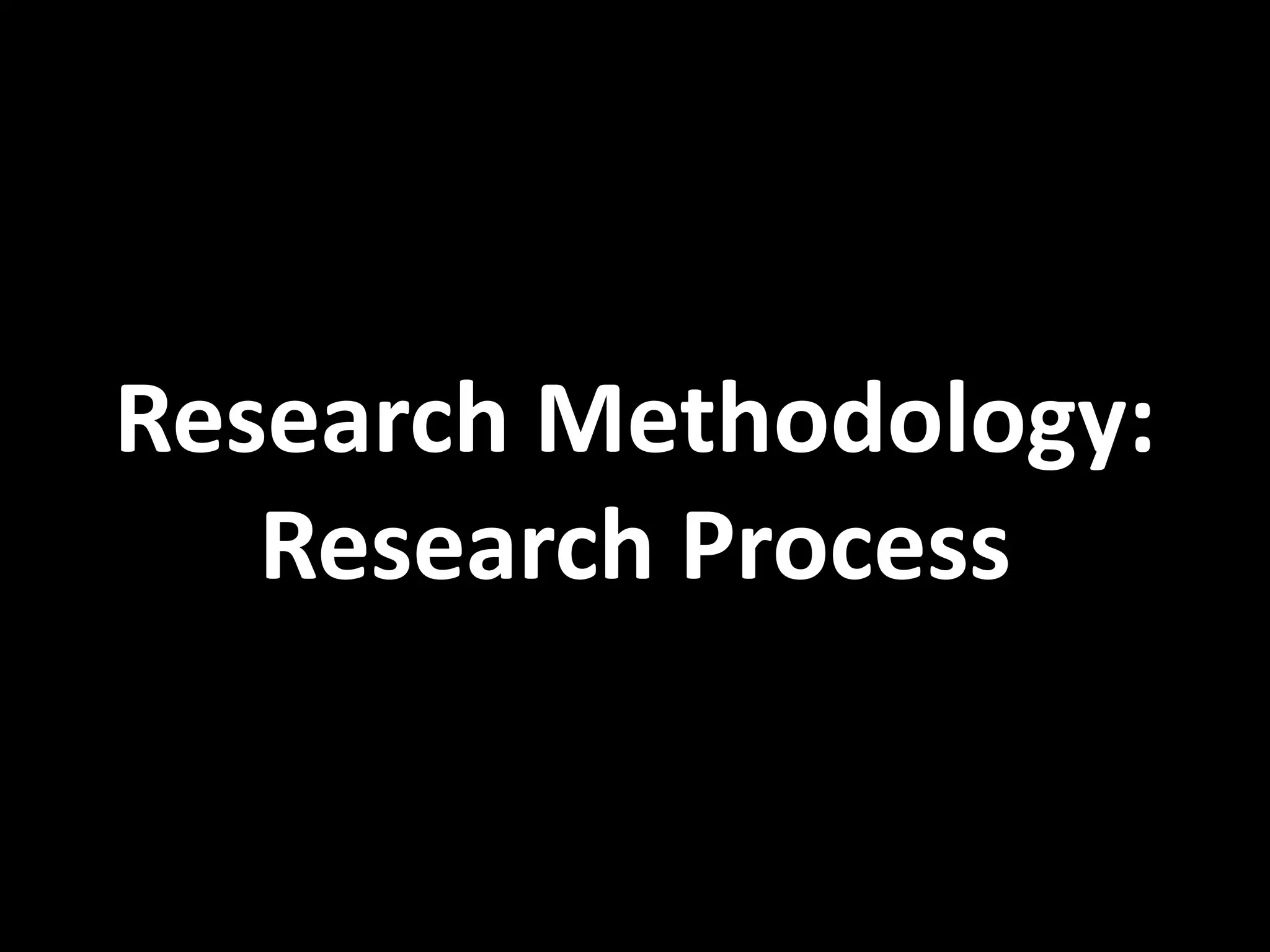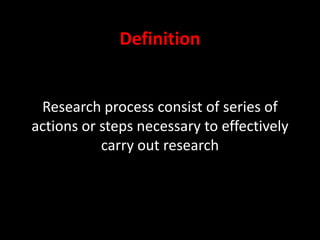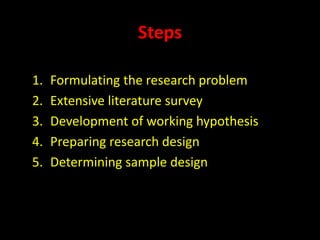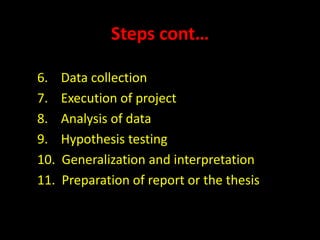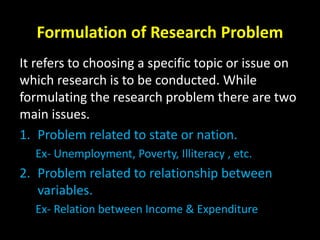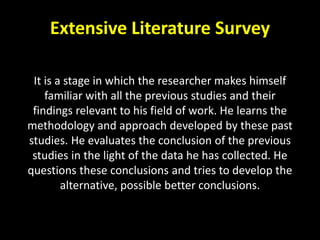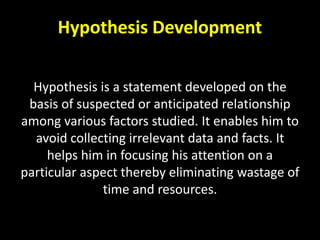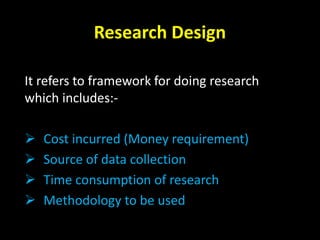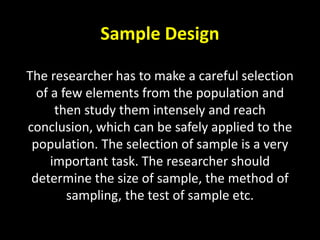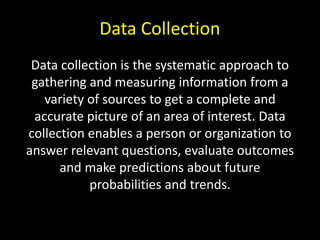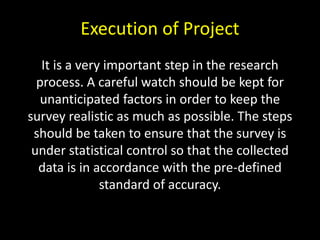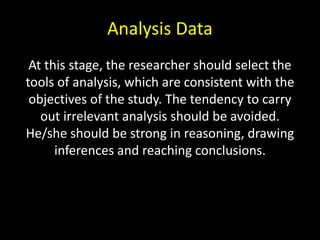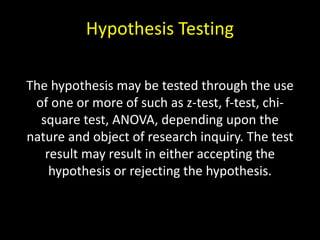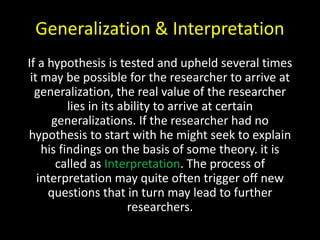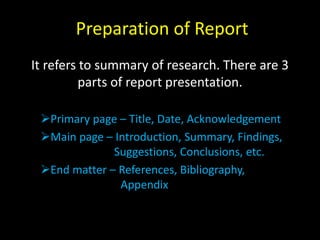The document outlines the typical steps involved in the research process: 1) formulating the research problem, 2) conducting an extensive literature review, 3) developing hypotheses, 4) preparing a research design, 5) determining sample design, 6) collecting data, 7) executing the project, 8) analyzing data, 9) testing hypotheses, 10) generalizing and interpreting results, and 11) preparing a report. Some key aspects include formulating a specific topic or research question, reviewing prior studies and hypotheses, developing a methodology for collecting and analyzing data, drawing conclusions, and communicating findings.
